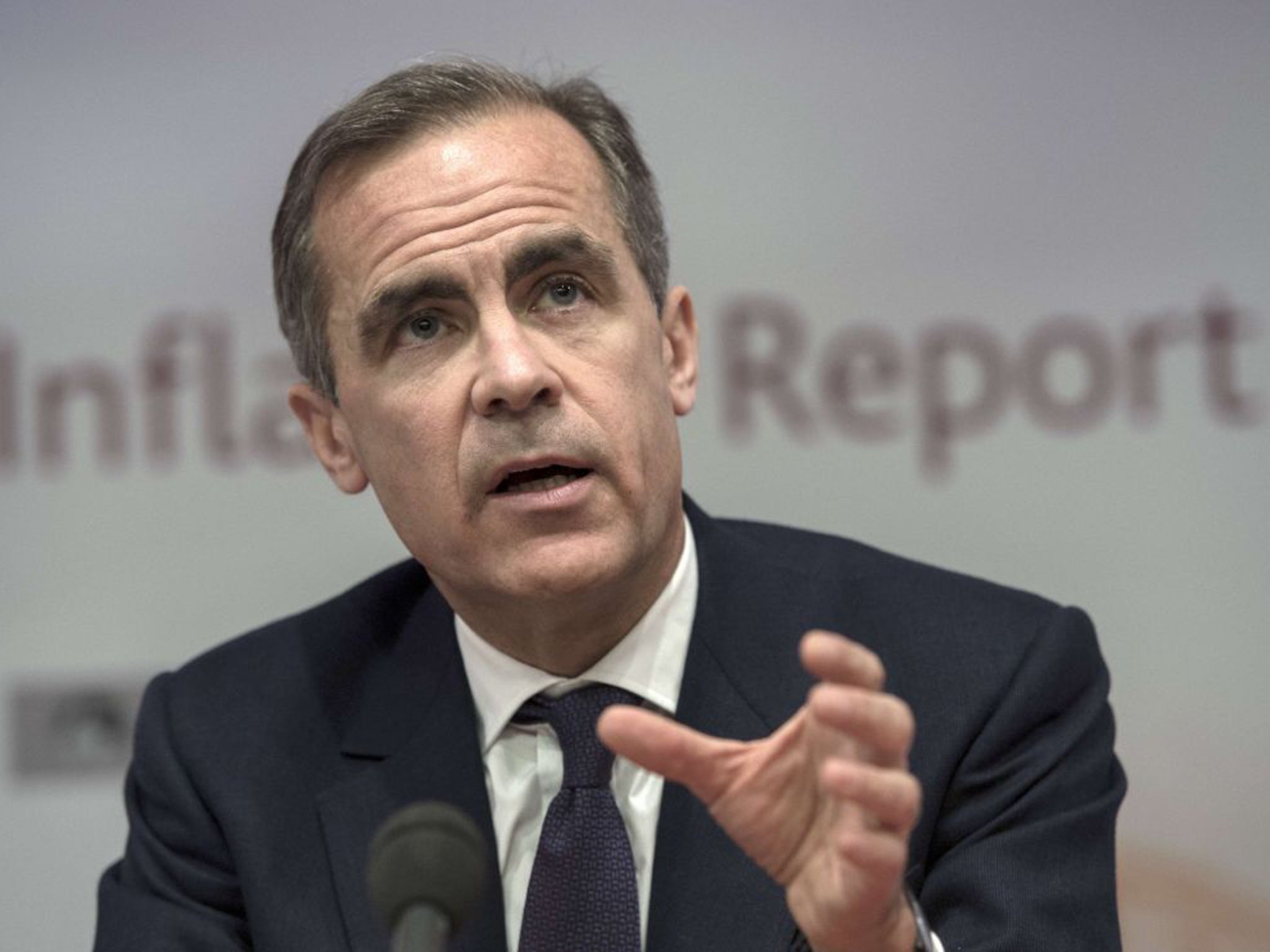Falling oil prices could push inflation to its lowest ever rate
Bank of England forecasts suggest the number will turn negative in the next few months

Your support helps us to tell the story
From reproductive rights to climate change to Big Tech, The Independent is on the ground when the story is developing. Whether it's investigating the financials of Elon Musk's pro-Trump PAC or producing our latest documentary, 'The A Word', which shines a light on the American women fighting for reproductive rights, we know how important it is to parse out the facts from the messaging.
At such a critical moment in US history, we need reporters on the ground. Your donation allows us to keep sending journalists to speak to both sides of the story.
The Independent is trusted by Americans across the entire political spectrum. And unlike many other quality news outlets, we choose not to lock Americans out of our reporting and analysis with paywalls. We believe quality journalism should be available to everyone, paid for by those who can afford it.
Your support makes all the difference.The inflation rate could drop to a historic low tomorrow due to the tumbling cost of oil and heavy price-cutting by supermarkets.
The Consumer Price Index (CPI) measure of inflation fell to its equal lowest ever level of 0.5 per cent in December. Economists have speculated that last month’s figure, which will be published tomorrow morning, could be as low as 0.3 per cent.
Bank of England forecasts suggest the number will turn negative in the next few months, ushering in the first spell of “deflation” since the 1960s.
The bank’s governor, Mark Carney, has urged consumers to enjoy the low prices while they last and predicted that the interest rate, which has been just 0.5 per cent since 2009, could be trimmed if low inflation continues.
CPI numbers going back to 1989 show it last falling as low as 0.5 per cent in May 2000.

They will be released in a key week for economic data, with unemployment figures out on Wednesday, and information on public sector finances published on Friday, giving an update in the Government’s success in cutting the deficit.
Pay data this week is expected to show wages once again growing ahead of inflation, pointing to the first sustained improvement in real-terms pay since 2008.
Howard Archer, chief UK and European economist at IHS Global Insight, said: “The Government will be hoping that very low inflation and improving earnings growth improves its popularity in the run-up to May's general election.”
Further key pre-election data in the public sector finance figures this week are expected to show a boost for the Treasury from self-assessment tax receipts.
Vicky Redwood, of Capital Economics, said these were “make or break” for the Chancellor, George Osborne.
“He is banking on a bumper crop of self-assessment receipts to get the downward trend in borrowing back on track,” she said.
Subscribe to Independent Premium to bookmark this article
Want to bookmark your favourite articles and stories to read or reference later? Start your Independent Premium subscription today.
Join our commenting forum
Join thought-provoking conversations, follow other Independent readers and see their replies
Comments